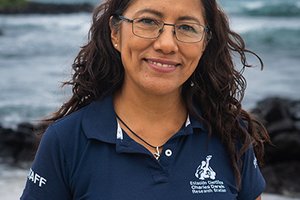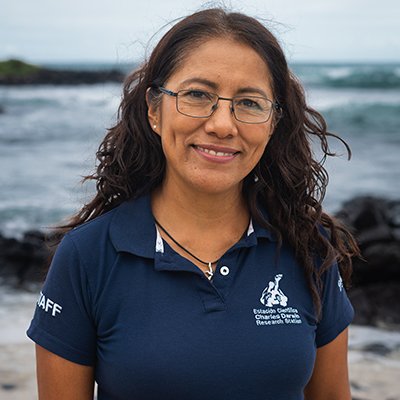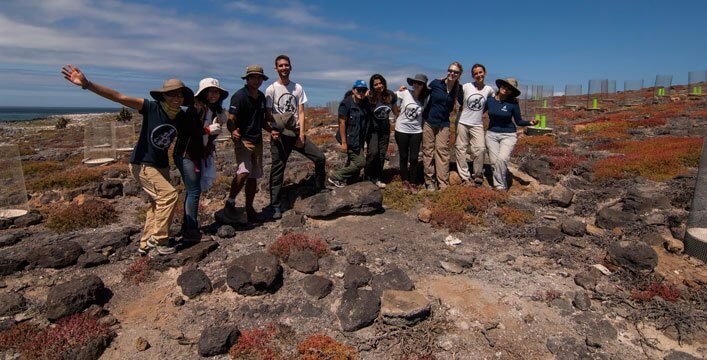
During May and June our team of scientists and volunteers, along with the collaboration of the Galapagos National Park Directorate, continued the initial phase in the process of ecological restoration of South Plaza through the recuperation of the cacti population (Opuntia echios var. echios). This species not only shapes the ecosystem of the island but is the main food source for terrestrial iguanas, whose population is very abundant in South Plaza.
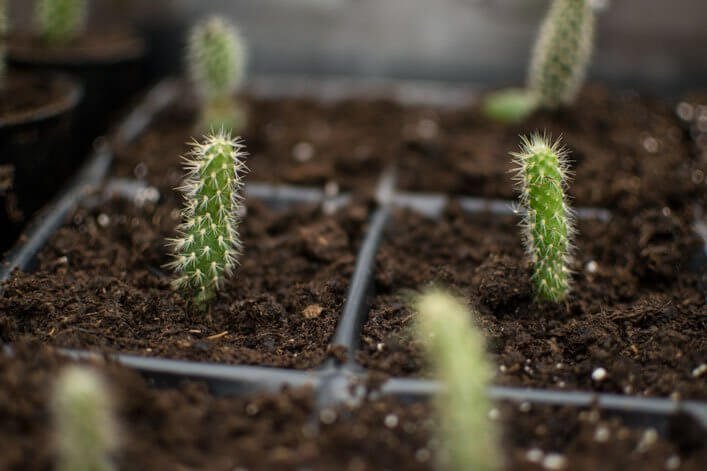
During these two months 430 seedlings were planted in three sites where historical evidence showed that they were once populated by cacti. Due to the extreme arid conditions of the island, one part of the seedlings were planted using the Groasis technology to save water and another part under natural conditions for control.
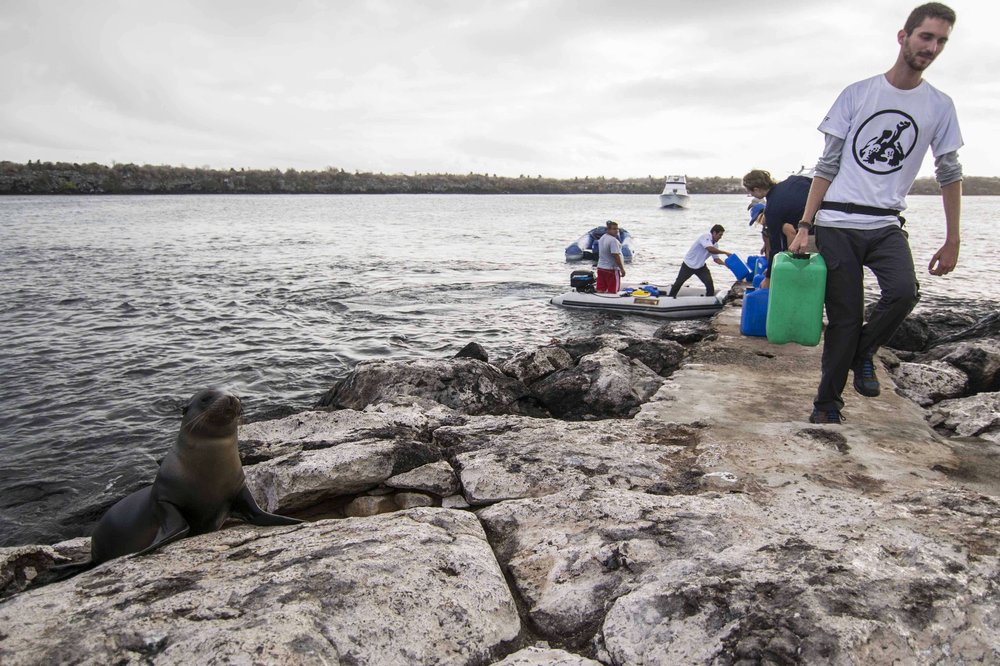
Even though the planting process took only a couple of weeks, we needed more than a year and a half of arduous work to arrive to this crucial moment in the island restoration.
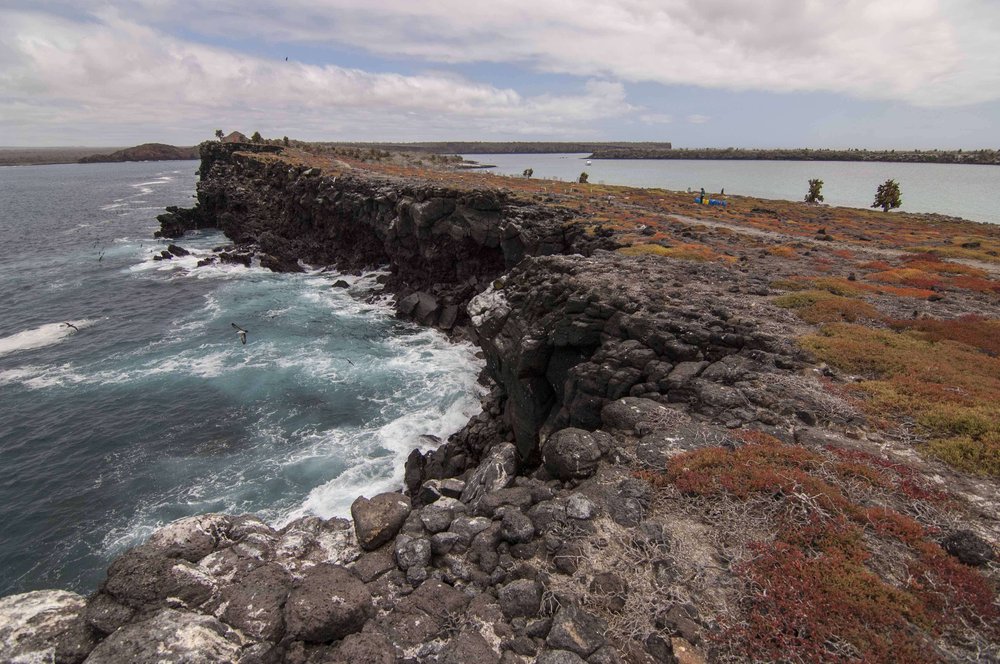
Our work included several phases, mainly: the recuperation of seeds from ripe fruits and iguana droppings, germination, care, a rigorous quarantine, transportation to the island, and finally sowing and protection with nets until the plants will be old and big enough to avoid being preyed by iguanas and birds.
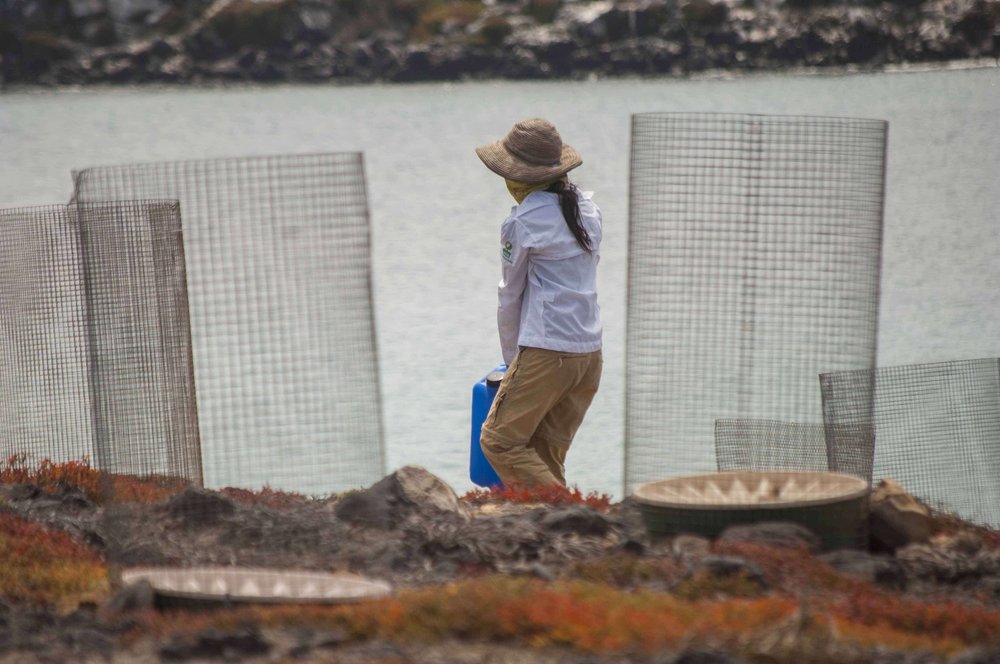
Our work continues, and our challenge is to recuperate the ecological integrity of the island and its capacity to generate services to human beings such as the aesthetics of the landscape and its unique biodiversity.
The Project Galapagos Verde 2050 is implemented by the Charles Darwin Foundation and the Galapagos National Park Directorate with the support of various strategic partners like the Autonomous Decentralized Government of Floreana, the Ecological Airport of Galapagos, the Agency of Regulation Biosecurity Control and Quarantine of Galapagos (ABG), the Navy of Ecuador and the Ecuadorean Air Force (in Baltra). Financially this project is possible thanks to the support of the COmON Foundation, The Leona M. and Harry B. Helmsley Charitable Trust and BESS Forest Club.





